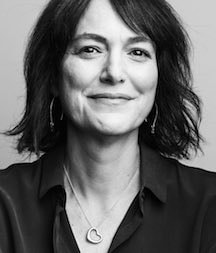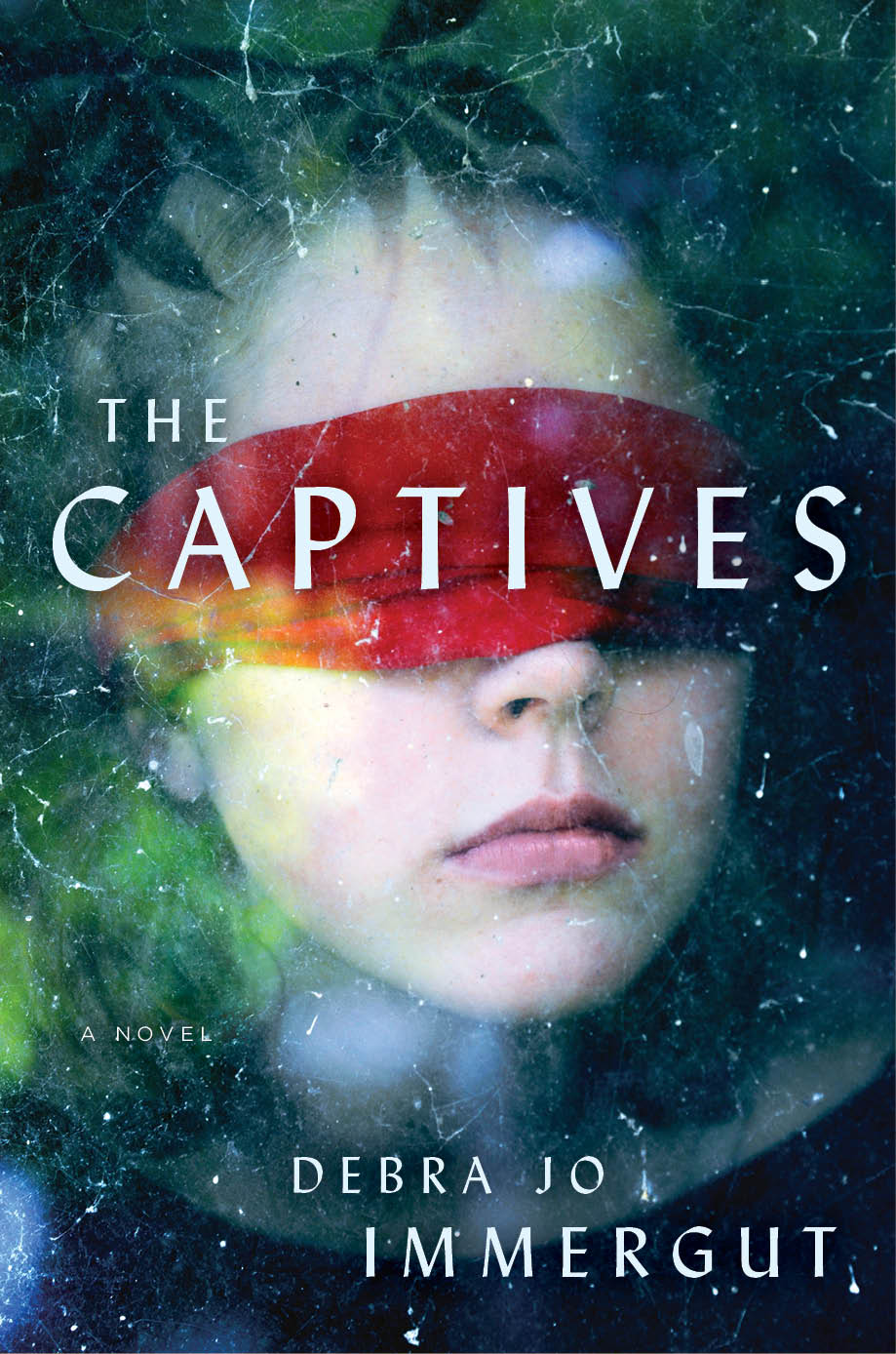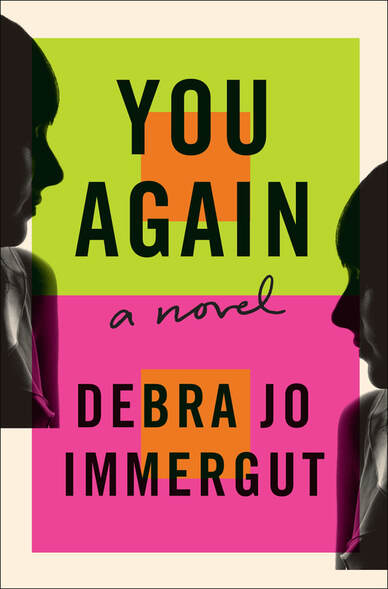WRITERS TELL ALL
 Matthew Turbeville: Hi Debra! It’s great to be able to pick your brain about your work and talk to you about writing fiction—all types of fiction, but crime fiction specifically. How did you get started writing? How old were you, and what kind of writer did you picture yourself as then? Debra Jo Immergut: Hi Matthew! I was such an avid reader as a child, and I dreamed of being a writer, but writing fiction seemed a very lofty and unreachable dream. So I focused more on journalism, worked on the school paper, and so on. It wasn’t until I’d graduated from college and was working in the magazine world in New York that I began to try to write fiction, at night, on the side. It was an escape from work, and I loved the freedom of it. MT: There was a long break between your collection of stories, Private Property, and your amazing novel, The Captives. What was the process in creating a novel like The Captives? How did you find yourself writing that—and especially in writing such a thrilling book? Why do you think you respond well to writing in the genre? DJI: Well, I wrote the first version of The Captives just a few years after Private Property was published, but it was rejected by some publishing houses and then my agent gave up on it. It was the era of light, bright romantic comedies, and darker stories weren’t as in demand. So I put it away and focused on other things, like being a mom with a fulltime job. The thing is, I never saw myself as a thriller writer, though. I love a story that moves and swerves, but I also want deep emotion and poetry. I look for all of those things when I read, and its what I strive for when I write. When I returned to the book after years away from it and began to revise, I tightened up the plot, raised the stakes, saw where I could add some interesting twists and turns--thanks in part to ideas from my new agent. I admire so many writers in the world of crime fiction because they know how to tell a great yarn and keep the reader entertained--but myself, I’m not so into being labeled. I just follow my instincts and try to write what moves me and what I’d love to read. MT: What was the process in developing and coming up with two voices within a novel, or more than two--You Again has several. How do you differentiate between the voices and work so well with them? What’s your process like generally? What are some things you avoid when working with voice? DJI: Aren’t we all many people? I mean, we all constantly grow and evolve, we have infinite moods and and infinite dimensions. Some people are compelled to express these other selves, and they become fiction writers. I don’t know… it’s a theory anyhow! The voices come to me in the shower, in the car, and, on good days, when I’m sitting with my hands on the keyboard. I do sometimes feel like a medium or a channeler. I’m also just an aficionado of human speech, the quirkier the better. But then being a language freak is like the baseline for being a writer. MT: The Captives is such an interesting and compelling premise, as is You Again. How do you decide to pursue a novel—does the premise or pitch come first, or do you work with a character or smaller storyline and develop it into something longer? What’s it like to create the mystery aspect of the novel? DJI: For me, premise is key. I will noodle around with, ideas, thoughts, I’ll write bits and pieces. I’ll describe rich settings and get to know characters--and often they lead me toward a premise. But my novel process doesn’t really begin until I find that energy-packed premise. That’s when I can really get some momentum and start feeling my way into the story. If the premise is good enough, the story almost unspools itself, and I’m just writing as fast as I can to keep up. So I’ll spend a good long time--years, even--finding the right premise. “A prison psychologist finds himself treating his incarcerated high-school crush.” “A 46-year-old thwarted artist is haunted by her 22-year-old self.” I knew I wanted to write about incarceration, or about the struggle to create, but I needed the engine for the story, and when I landed on those premises, I knew I had it. A great premise contains mysteries, unanswered questions--possibilities. I don’t outline…I write my way in, find a premise that will serve as a powerful engine, and then buckle in and let that journey unfold and surprise me. MT: What books do you turn back to most when you need inspiration for your own writing? What books do you read when you want to remind yourself how good writing can be, and perhaps what you may want to aspire to? DJI: Lectures on Literature by Vladimir Nabokov. A towering writer dissecting what makes great novels tick. Beloved by Toni Morrison. Maybe the best novel written in the last 100 years. Both of these are endlessly inspiring. When I running low on belief in the endeavor, these refill my tank. I’m inspired by so many contemporary books too, but classics are classics. We need them. MT: What do you think your “dream book” would be to write? Do you have that in mind—the book you’ve perhaps been waiting your whole life to write—or have you already written it in one of your published books? DJI: That’s a terrific question. I keep trying to write that dream book every time I sit down, I think. And I never will. That’s what keeps us going, right? Ann Patchett likened the process of writing to pursuing a butterfly you’ll never pin. And would we really want to? But while I’m writing, my novel in progress is the dream… MT: What was it like managing multiple timelines within a book like in You Again? It’s such a brilliant and complex book and would have definitely thrown me for a loop if I’d been writing it. I was wondering how you map the book out and keep it all together while writing. What’s your process like when constructing such a book? DJI: I mentioned above that I begin by writing toward what feels like a strong premise. Once I have that, it powers the first draft. I may start making a rough map when I’m about two-thirds through the first draft, and I have a sense of what I’ve set into motion, and I feel like I need to figure out where it might end. Once I have the first draft finished, I do make made all kinds of charts and maps in order to understand and tweak the structure of the story, tighten up slack spots, and keep it all straight in my mind. I’ve done everything from hand drawn schematics with colored pencils to Google Doc tables listing every scene in the book so I can move them around and cut as needed. You Again nearly broke my brain! But all that charting came after the first draft, which was written just following along after my characters as much as possible and letting them surprise me. MT: Your stories are also critically acclaimed—which of your stories is your favorite, and which do you want to have more attention? What do you think can be done better with stories than in novels? Can you give any examples? DJI: I like to use stories to play, stretch, experiment. They’re a great lab for voice. Writing short fiction is super challenging--maybe even harder than novels, in some ways, to write something that really packs a punch. I am pretty fond of the hard-boiled voice that came to me while writing “Mean Drunk,” which is kind of a noir-ish crime-ish sort of story about a woman who deals drugs and falls in love with a bad customer. It was published online in the great literary journal Litro. And I’m going to be very honest, Matthew. I haven’t read my short stories in Private Property in many years! I think I’m a little afraid to. MT: What are you working on now? Can you give us any hints as to what and when we might see something next? (I’m such a big fan, and am pretty giddy with anticipation!) DJI: I finished my third novel this summer. It’s a compressed family epic centered on the exuberant, haunted city of Berlin around the fall of the Berlin Wall. While writing it, I drew on my five years living there during that era, and on the difficult period we’re living in now. The novel explores the past 100 years, crosses the Atlantic, and proposes that, by persisting through dark times, we are generating fuel for our long drive toward joy. It’s been the best creative experience I’ve ever had, writing this book, and I hope it will delight and console the people who read it. MT: Thank you so much for allowing me to interview you, Debra! I love your work so much, and I’m very grateful for this opportunity. I can’t wait to read what you publish next!
0 Comments
|
AuthorMatthew Turbeville Archives
June 2023
Categories |


 RSS Feed
RSS Feed
